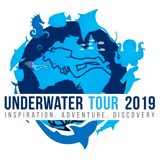
Dolphin slaughter documentary to be released after secret filming mission in Japan
Japan Times published this article last week
Secret film will show slaughter to the world - Covert operation finally exposes Taiji's annual dolphin horror
For the first time ever, graphic feature-length footage of the annual slaughter of some 2,500 dolphins in Taiji, Wakayama Prefecture, has been captured during a unique yearlong covert operation.
The secret filming by members of the U.S. conservation group Oceanic Preservation Society (OPS) — equipped with state-of-the-art technology and financed to the tune of $5 million by Netscape founder Jim Clark — is being turned into a major documentary feature film destined for worldwide release this summer (although distribution in Japan is at present not certain).
The story of how this film of the barbaric killing and subsequent butchering of dolphins was made — together with the resulting sale of their meat that massively exceeds Japanese and international limits for mercury content — is told here, exclusively, for the first time anywhere in print.
The footage of the annual seven-month dolphin "drive fisheries" (as they are known in Japan), and of the brutal practices involved in them — as well as the complicity in the killings by various dolphin trainers and officials from Taiji Whale Museum — is sure to shock the world. But whether Japanese people themselves will be able to see the film and arrive at their own conclusions is still by no means certain.
The annual dolphin slaughter at Taiji, a town with a population of some 3,500 in the beautiful Yoshino Kumano Kokuritsu Koen national park, follows a regular pattern.
First, hunter boats from the Taiji Isana Union (numbering at most 13 skiffs, with two crewmen each) head out to sea and surround pods of dolphins or pilot whales (which are actually large dolphins). Then they drive them into a "capture cove" by banging on long metal bell-ended poles placed in the water to disrupt the dolphins' sonar, causing them to become completely disorientated and panic.
After these animals have spent a night supposedly relaxing in the netted-off capture cove (in an attempt by the whalers to make their meat more tender), they are driven to the neighboring "killing cove." There, behind huge blue tarps strung across the cove to keep prying eyes away — in much the same way that Japanese police cordon off crime scenes — the dolphins meet their gruesome predawn end.
It is a gory spectacle that Taiji has long striven to keep anyone from seeing — and one that is crucially fueled by the lucrative, worldwide dolphin captivity and display industry. Aquarium operators, some of whom have claimed to be saving dolphins' lives by selecting a few as performers, pay up to $150,000 per animal.
The brutal selection process, though — as shown in the OPS footage — causes many of these highly intelligent marine mammals to die of shock or drown.
Read the full and detailed story with pictures at:
http://search.japantimes.co.jp/cgi-bin/fl20080330x1.html
![]() Contributed by Tim Hochgrebe added 2008-04-05
Contributed by Tim Hochgrebe added 2008-04-05
Replies of 1
- Emma added 2008-09-15
Surely these people shouldd bee brought to some sort of justice??? But will this ever happen???
Replies of 1
![]() Login or become a member to join in with this discussion.
Login or become a member to join in with this discussion.

 Sea-Doo Seascooter Australia
Sea-Doo Seascooter Australia
Exclusive official distributor and dealer for SEA-DOO Seascooters in Australia and New Zealand. The revolutionary SeaDoo Seascooter series feature the lightest and most efficient personal water propellers in the world at a price that won't break the bank.
Articles
-
 So you thought the Ocean had marvellous creatures to see!
So you thought the Ocean had marvellous creatures to see!
by Ric Mingramm
- In 2003 having been dry for the bulk of a number of years due to having a young family I finally broke through and was able to get both my sons PADI accredited. Hallelujah, I now had an excuse to go diving ...






